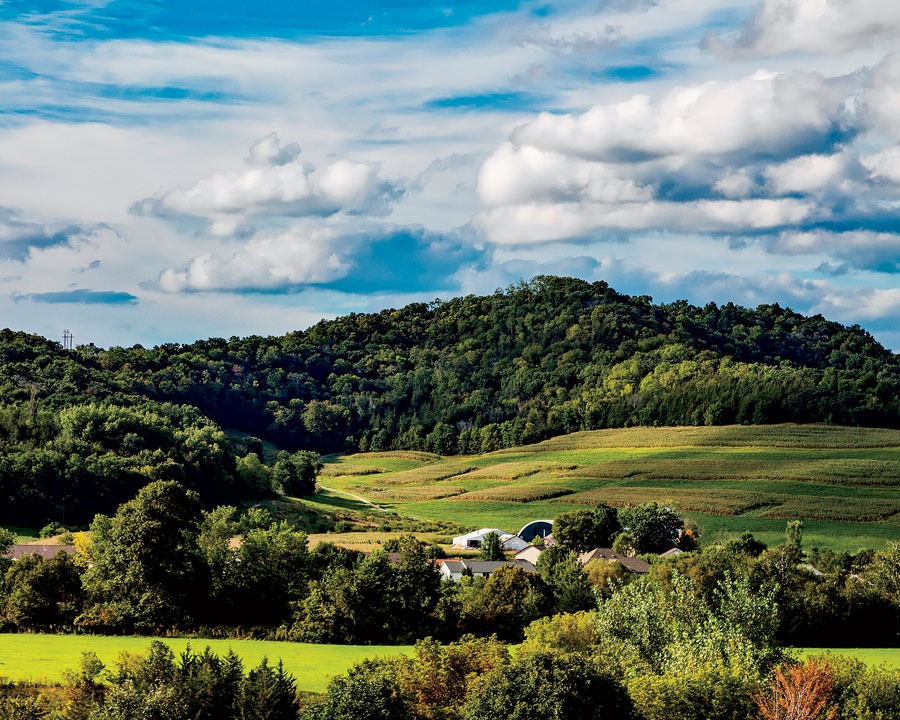All along the highway toward southwest Wisconsin, there’s blowing snow and a hard sky, and I worry aloud to my husband that the whole place will be shut down, the weekend trip a bust. By the time we arrive in Spring Green, night has inked out all the town’s windowpanes — all except those at the Slowpoke Lounge (137 W. Jefferson St.), whose glow seems a beacon.
After a three-and-a-half-hour drive from Chicago, we are ravenous and a little dazed, and it’s only after we’ve ordered drinks and food that the place begins to register. Naugahyde swivel chairs and creaking shelves of vintage vinyl read uncle’s basement, but our meal — Brooklyns in chilled coupes, Alpine-style goat cheese, citrus-accented Wisco Old Fashioned salami and feisty ’nduja from Madison’s Underground Meats — says otherwise. A chalkboard lists the upcoming lineup for a performance space in back: a drag show, a bluegrass band. Well, this is eclectic, I think.
Spring Green sits within the Driftless Area, a sprawling stretch that remained unfrozen during the last Ice Age and thus lacks drift, or sediment left in the wake of moving glaciers. We’ve come to the region because I’ve heard tell of an idyll of farmhouse cheeses and pasture-raised meats. The region’s geologic idiosyncrasies are the key to its culinary identity, Wisconsin Foodie host and Driftless native Luke Zahm explained to me before my visit. Hills and deep valleys make large-scale agriculture impossible, and in the 1980s local farmers began pooling their products as a means of survival. This cooperative model caught on, and, by necessity, the low-impact farming methods have persisted. Today, the concentration of organic farms in Vernon County is rivaled by only one other U.S. county. You might say Driftless is the future, except small and sustainable aren’t correctives here. They’re just life.
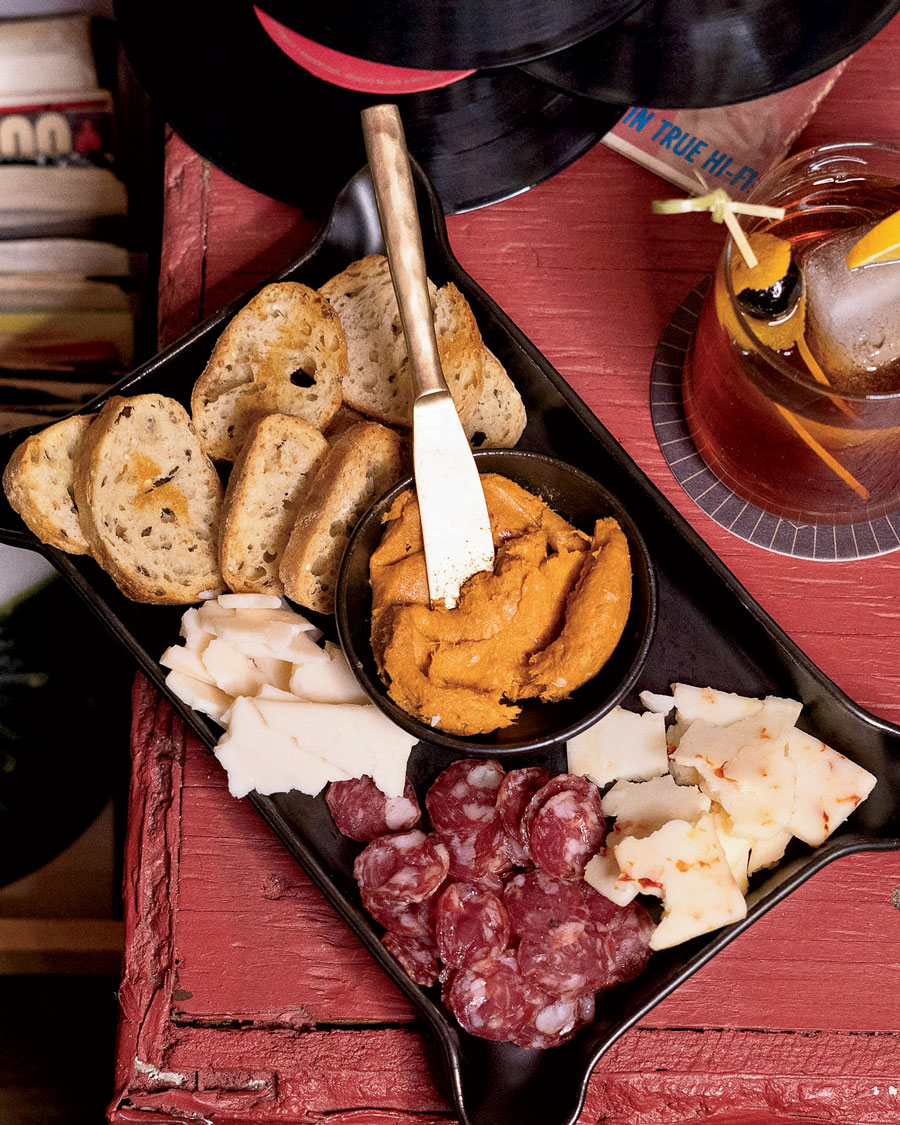
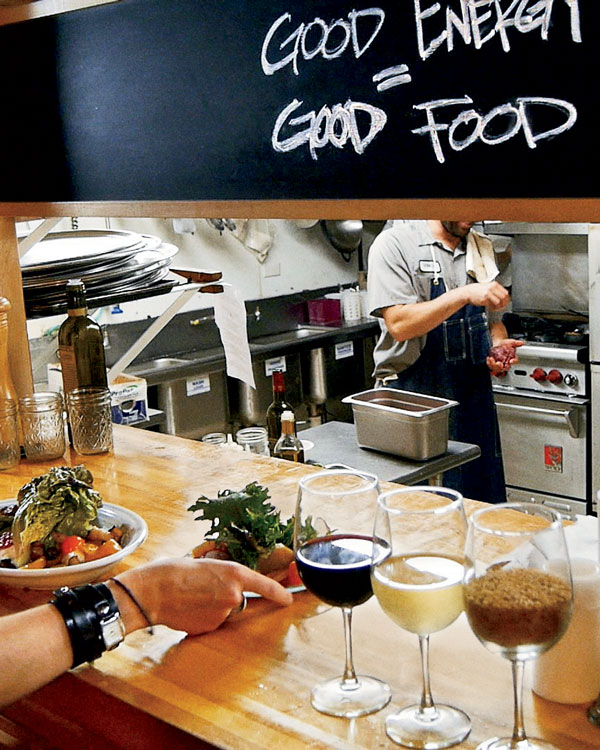
In the morning, it’s onward 40 miles north to Viroqua, a small town with an outsize reputation for good food. “No jerks,” reads a handwritten sign at our first stop, Maybe Lately’s (117 N. Main St.). In the snug dining room, I watch low-key servers bounce among old-timers in Carhartt coats, little families, and a remote-worker type. The mood is jokey. Conversations commingle. Over veggie hash and a biscuit (made with locally milled flour) that’s so buttery-tender it prompts a sigh, I start to wonder if I’m the jerk. As Chicagoans, we congratulate ourselves on our cosmopolitanism; yet with our profusion of public spaces, we self-segregate. When options are fewer, everyone just coexists.
After breakfast, we stroll down the block to Noble Rind Cheese Company (110 W. Court St.), housed in the handsome Fortney, a newly restored historic hotel. Cheesemonger Sarah Clemens guides us through her favorite Driftless offerings. Some — two-year cheddar from Hook’s, milky brick from Widmer’s — are familiar and tasty. But the ones that stick are new to me: earthy, crystalline bandaged cheddar from Bleu Mont Dairy and a nutty raw sheep’s cheese from Hidden Springs. These are small-batch operations without sufficient output to make it to Chicago. To taste the Driftless, you have to come on up here.
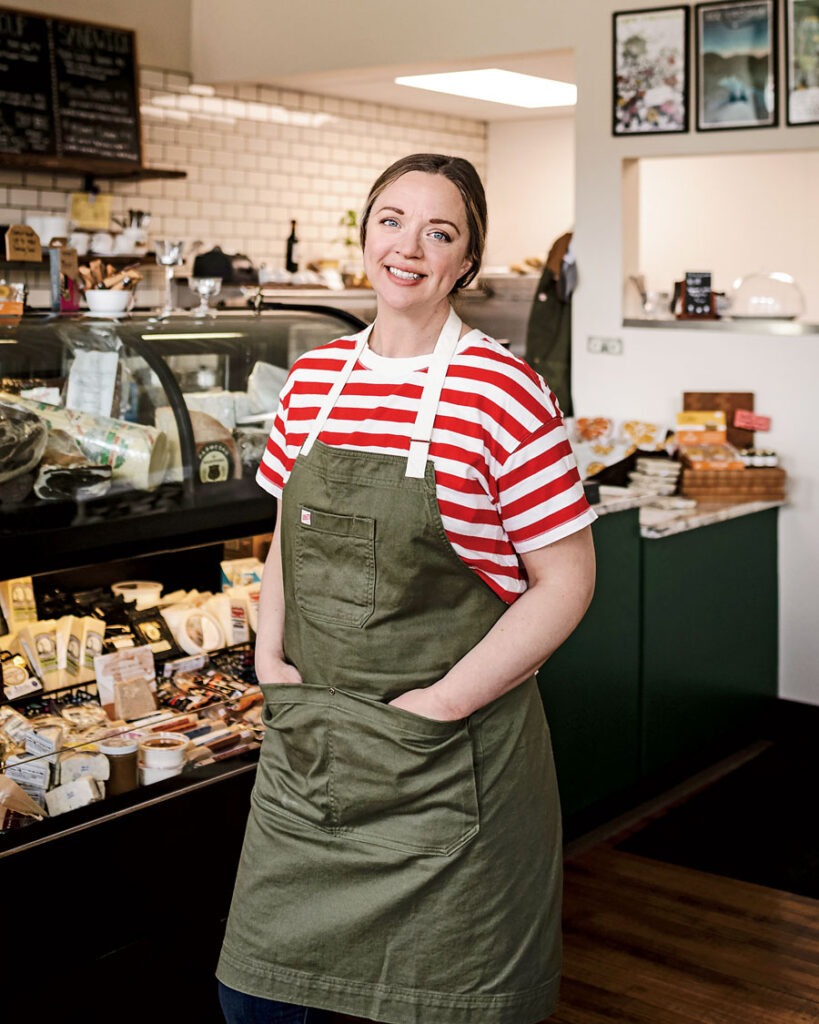
No place synthesizes the area’s tastes like Driftless Café (118 W. Court St.). Owned by Zahm and his wife, Ruthie, and helmed by Evanston transplant Mary Kastman (both she and Zahm have earned James Beard Award nominations), it’s dedicated to local sourcing — a radical proposition in a region that’s crusted in snow a good chunk of the year. For all that earnestness, it’s not a precious place; there’s a kids’ menu, and pizza too. We sit beside the front window, and during our meal — Organic Valley tenderloin over buttery mash, a mammoth grazing board, sweet potato fondue, and crisp-battered walleye — it begins snowing heavily. Perhaps it’s a trick of the room’s oak tones, but just then it feels like the warmest place you could want to be.
If cheese hangovers exist, we have ripping ones the next morning and, on sheer willpower, we drive 50 miles west to La Valle, the home of Carr Valley Cheese (S3797 County Road G). The variety of cow, goat, and sheep offerings here, some internationally awarded, is staggering. Early birds can observe the curd-making process through a viewing window while sampling the spoils. When I learn that we’ve missed out, I’m secretly relieved, but that doesn’t stop me from picking up some Glacier Penta Crème blue and cocoa-rubbed Cardona for later.
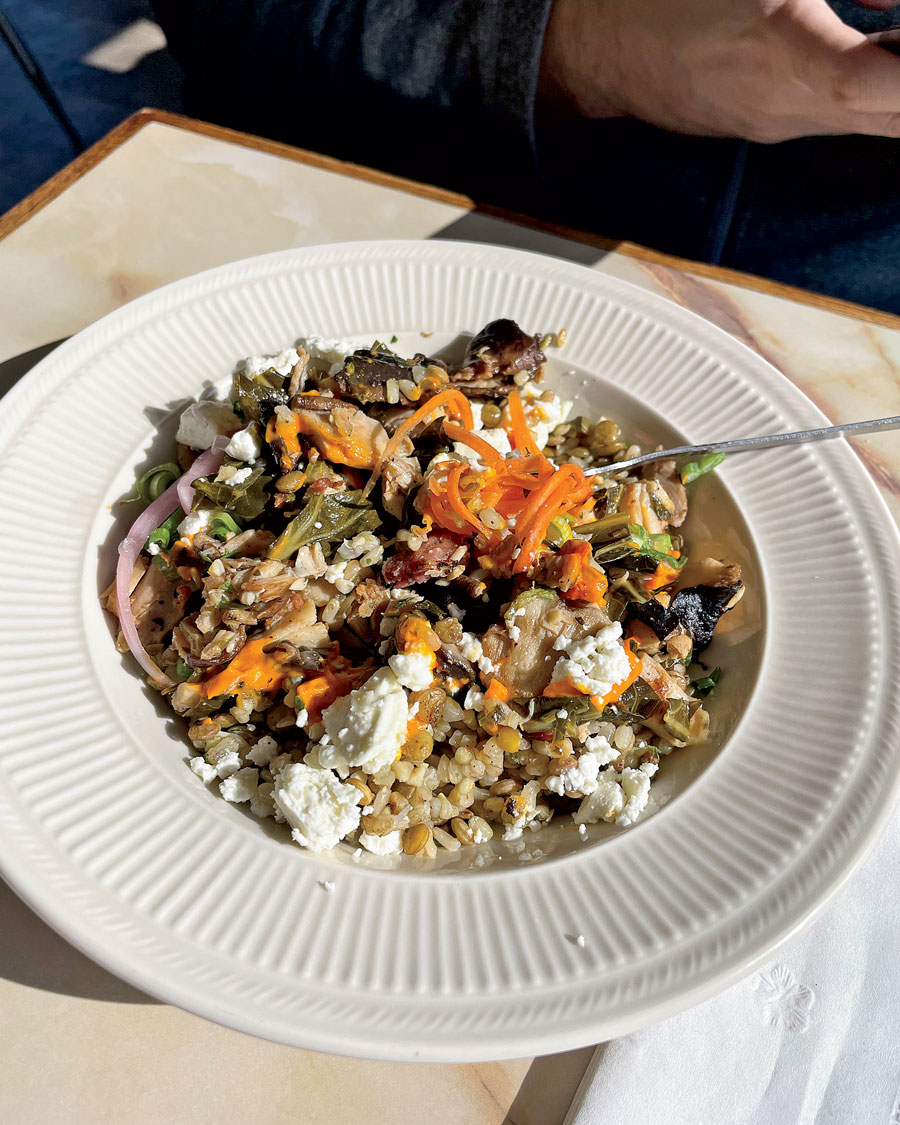
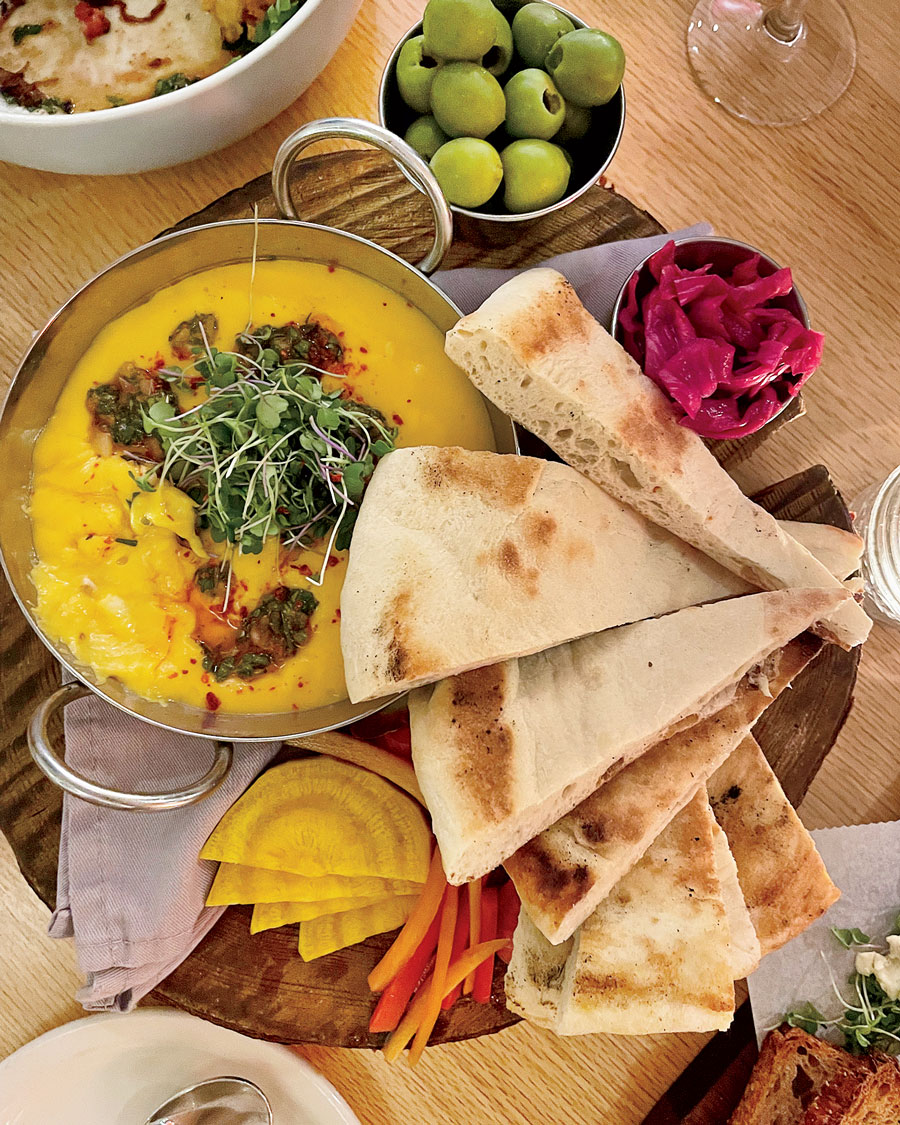
Thirty minutes south, we stop in Richland Center at Pearlfield Bistro & Bakehouse (212 N. Main St.), run by Driftless Café alum Lyndsay Byrnes. The menu is homey and wholesome; we have lentil soup and a root vegetable grain bowl and afterward feel human again. Soon we’ll make our way back to the frigid interstate, but on Byrnes’s recommendation, we detour to Wild Hills Winery in Muscoda (30940 Oakridge Dr.). Perched above wooded glens, the vineyards make a fabulous picnic backdrop, probably; in winter, they’re host to snowshoe tours. Thinking of Midwestern wines I’ve met, I brace for syrupy sweetness. When instead I smell cherry and warm spice, I ask the tasting room attendant if all the grapes are grown onsite. She schools me on cold-hardy varieties that thrive here, like Frontenac and Marechal Foch. “It’s like the Driftless has its own wine language,” I note. She nods, then adds that they also stock beer in the cooler. It’s Wisconsin, after all.



